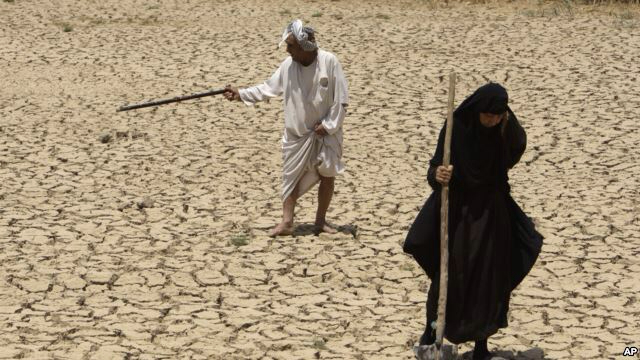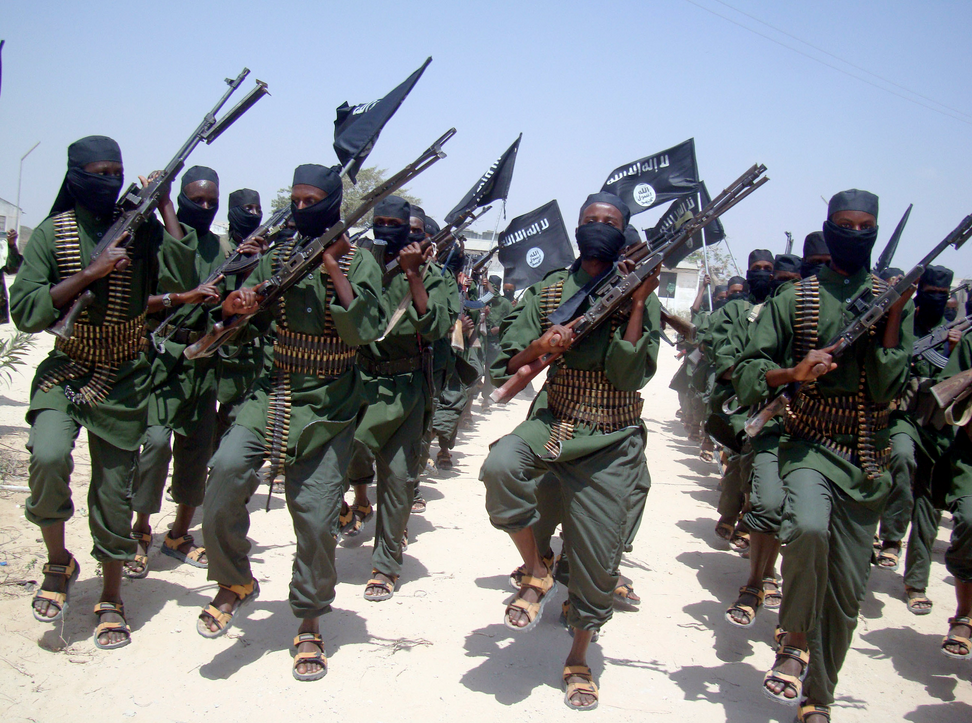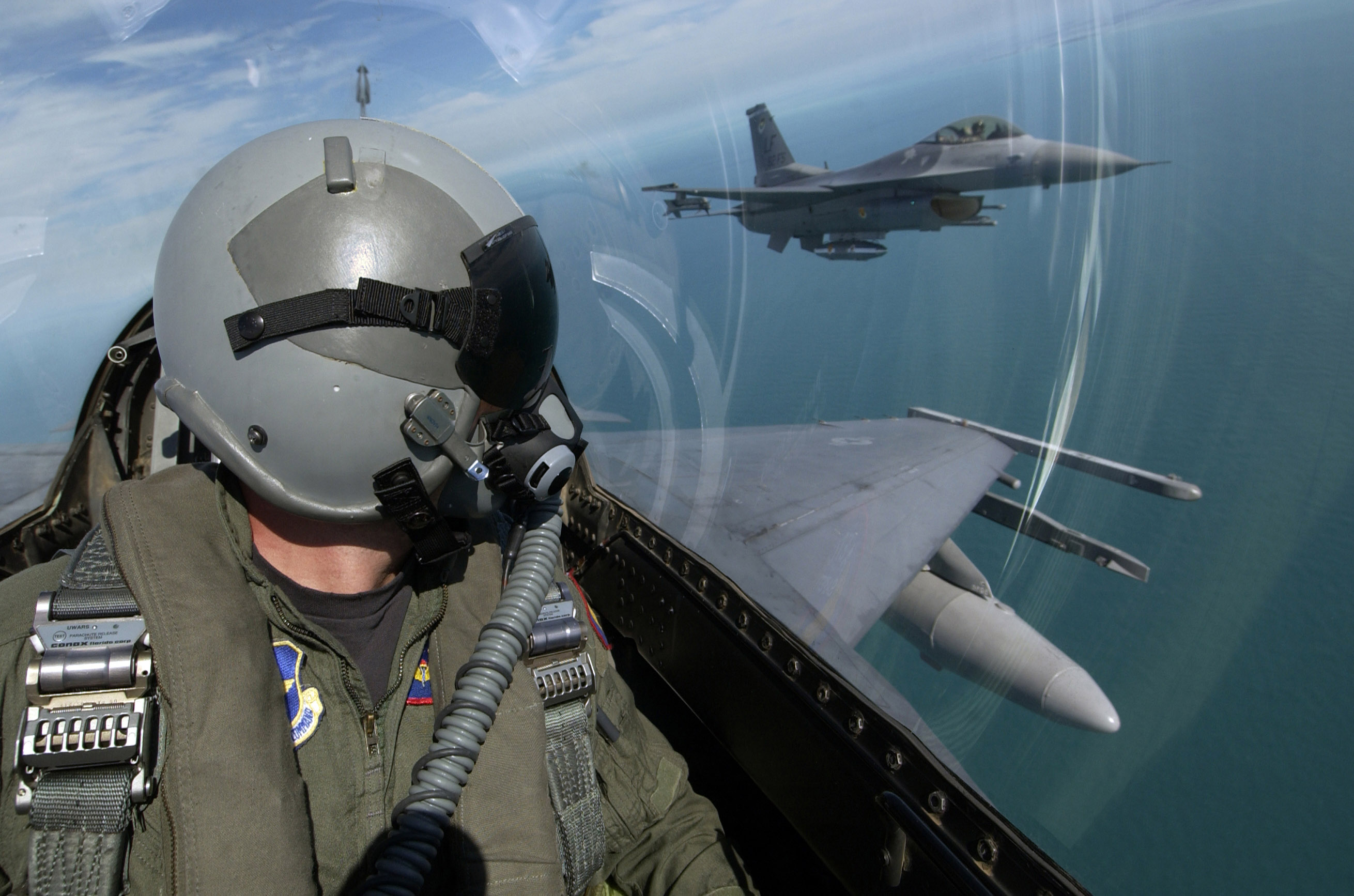The severity of the water crisis in North Africa and the Middle East (MENA) is worrisome. According to the UN, over 780 million people around the world do not have access to potable water. The UN predicts that by the year 2025, as many as 30 countries will face water shortages. 18 of those countries will be located in the MENA region, including Egypt, Somalia, Libya and Yemen. A lack of water has created a lucrative world water industry, in addition to instigating economic and political turmoil within the above mentioned region.
Water Borders
The MENA region has a limited number of major rivers with accessible clean water. Sharing these water ways has created political turmoil between governments, and it has created what some have called a Water War. The five major waterways situated on this terrain are the Jordan River, the Nile River, the Euphrates, the Tigris, and the Chatt-E-Arab, which flow into the Persian Gulf. Some of these rivers act as borders between countries, and almost all of them flow through many national borders, making access and ownership a contentious issue.
Water Disputes
The war for water is an ongoing crisis, but gained relevance in the 20th century. Specifically, disputes broke out over water distribution and control over the Jordan River. Israel gained control of most of the water, and has since implemented preservation techniques, in addition to irrigation and industrialized agricultural systems that have allowed it to create farms in what is essentially a desert. Despite these advances, it is important to note that Israel has privileged access to the Jordan, and this has contributed to the ongoing Israeli-Palestinian conflict.
Several other examples of conflict exist. During the 1970s Syria filled a dam with water from the Euphrates and Tiberius Tigris rivers, which led to a 25% reduction in the flow of Iraq’s river. As a result, Iraqi troops approached the Syrian-Iraqi border and a conflict over water broke out. In Turkey, during the early 1990s a water management program was established in the South Eastern Anatolia region known as the Gulf Cooperation Council (GAP). The building, which consists of at least 17 dams, is famously known as the Ataturk dam and it resulted in serious disputes between Syria and Turkey.
Egypt, which sits at the end of the Nile River, is often concerned about water shortages. Ethiopia, which contributes 83% of the Nile’s total flow, is currently in dispute with Egypt, who denies Ethiopia its rights to carry out any development plans that would alter the river flow or rate of flow. Many of these disputes have created political turmoil, which both deprives citizens of water access and forces less powerful countries to make contracts with water industries such as Nestle. Such contracts are notoriously harmful to local communities. As an example, after Nestle quickly privatizes public water sources, people are forced, in already water-stricken situations, to purchase water that was once free. At the moment, Nestle is dominating much of Africa, Latin America, the Middle East, and even the US.
[captionpix align=”left” theme=”elegant” width=”300″ imgsrc=”http://natoassociation.ca/wp-content/uploads/2013/10/cosl07_dubai.jpg ” captiontext=””]
Taking advantage of Water
While countries such as Yemen, Iraq, Afghanistan, and Ethiopia struggle against water insecurity, many GCC countries such as Dubai are spending $1.1 million dollars on frivolous projects: for example, ensuring that grass and plants on golf courses located in the middle of the desert are supplied with water 24 hours a day. When comparing Israeli’s water usage to GCC countries, it is clear that water management needs to become more transparent and it should be a priority for Middle Eastern countries. If the GCC countries do not place limits on their water usage, countries such as Yemen, where uncontrolled water extractions and unequal distribution threaten daily life, will be one of the first to run out of water. Certainly, some headway is being made and this conversation is gaining prominence. For example, the Abu Dhabi water and electricity (ADEWEA) and power and water convention held on 25 September 2013 discussed possible plans and interventions to help save water.
Canadian Intervention and the Preservation of Water
Preserving water in the Middle East is also an international responsibility. One example of Canadian intervention in the Middle East occurred in Afghanistan, where Canadian troops supported the Afghanistan National Forces (ANF). Canada plans to remove its troops by 2014, and has committed Canadian assistance in developing new forms of infrastructure in Afghanistan. Most importantly, one of the key projects is maintaining dams and irrigation canals. With the help of Canada, Afghanistan may have a handle on its difficult water situation. If the implementation of such projects is successful, Afghanistan could act as a model for the surrounding Middle Eastern and African countries on water use and policies.




